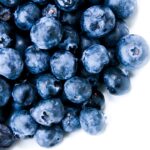The Science behind Superfoods: How do they work?
Introduction
Welcome to the intriguing world of superfoods! Often celebrated in health magazines and dietary blogs, superfoods are praised for their rich nutrient profiles that offer a plethora of health benefits. But what exactly makes a food “super”? This blog dives into the science behind these power-packed foods, exploring how their components like antioxidants, vitamins, and minerals contribute to our health. Join us as we uncover the facts and debunk myths, ensuring you have the knowledge to harness the true power of superfoods.
The Basics of Superfoods

Definition of superfoods
Superfoods are not a scientific term but rather a popular label given to foods that are exceptionally rich in nutrients and beneficial to one’s health. These foods boast a high volume of vitamins, minerals, antioxidants, and other essential nutrients with minimal caloric content. The concept of superfoods is embraced in the health and wellness community for their profound benefits, ranging from enhanced immune function and better heart health to improved energy levels and antioxidant protection. The allure of superfoods lies in their ability to deliver these significant health boosts, often attributed to their dense nutritional content.
Common types of superfoods
Superfoods come in various forms and are often staples in healthy diets around the world. Some popular examples include:
– Berries: Blueberries, strawberries, and acai berries are coveted for their high antioxidant contents.
– Leafy Greens: Spinach, kale, and Swiss chard are praised for their rich vitamin, mineral, and fiber content.
– Nuts and Seeds: Almonds, chia seeds, and flaxseeds are recognized for their healthy fats and protein.
– Legumes: Beans, lentils, and chickpeas are excellent sources of fiber and plant-based protein.
– Whole Grains: Quinoa, oats, and brown rice provide sustained energy through complex carbohydrates and fibers.
– Fatty Fish: Salmon, mackerel, and sardines are rich in omega-3 fatty acids, crucial for heart and brain health.
Each of these foods offers unique benefits and can be incorporated in various diets to enhance overall health and well-being.
Nutrients in Superfoods
Vitamins and minerals
Superfoods are revered for their exceptional levels of vitamins and minerals. For instance, leafy greens are a fantastic source of vitamins A, C, and K, as well as minerals like iron and calcium. Citrus fruits excel in providing vitamin C, which is essential for immune function and skin health. Moreover, nuts and seeds contain significant amounts of magnesium, potassium, and zinc, which support numerous bodily functions, including nerve function and immune response. Incorporating a variety of superfoods in your diet ensures that you receive a broad spectrum of these vital nutrients, supporting overall health and preventing nutritional deficiencies.
Antioxidants
Antioxidants are crucial in the fight against oxidative stress, which is linked to chronic diseases such as heart disease, cancer, and Alzheimer’s. Superfoods such as berries, dark chocolate, and green tea are loaded with antioxidants like flavonoids and carotenoids. These compounds help neutralize free radicals, harmful by-products of metabolism that can damage cells. Regular consumption of antioxidant-rich superfoods can help reduce inflammation and protect the body from the harmful effects of oxidative stress.
Fiber
Fiber is another essential nutrient abundant in many superfoods. Whole grains, legumes, and fruits and vegetables are significant fiber sources that promote digestive health, help manage weight, and regulate blood sugar levels. Fiber aids in digestion by helping to form stool and promotes regular bowel movements. It also plays a role in cholesterol management and can help reduce the risk of heart disease. By including fiber-rich superfoods in your diet, you contribute to overall gastrointestinal health and maintain steady energy levels throughout the day.
Health Benefits of Superfoods
Boosting immune system
Superfoods are renowned not just for their nutrient density but for their impressive capability to bolster the immune system. Foods like blueberries, spinach, and turmeric contain high levels of vitamins, minerals, and antioxidants that contribute to immune defense. For instance, citrus fruits pack a hefty dose of vitamin C, a well-known immune booster. Similarly, garlic contains allicin, a compound with potent antibacterial and antiviral properties. Incorporating these superfoods into your diet can lead to fewer illnesses and a more robust immune response.
Improving heart health
The heart is another beneficiary of the superfood powerhouse. Many superfoods contain antioxidants, healthy fats, and fibers, which help reduce blood pressure and improve blood lipid levels. Omega-3 fatty acids found in chia seeds and salmon, for example, are known to decrease the risk of arrhythmias and atherosclerosis. Oats and barley, rich in beta-glucan fiber, can significantly lower LDL cholesterol levels, thereby protecting the heart. Regular consumption of these superfoods can contribute to long-term cardiovascular health, reducing the risk of heart diseases.
Enhancing brain function
Brain health is critically important, and certain superfoods can particularly aid in enhancing cognitive functions. Foods like walnuts, which are rich in alpha-linolenic acid, and berries, with their flavonoids, are excellent for improving mental alertness and reducing cognitive decline. The antioxidants in these foods help reduce oxidative stress and inflammation, two enemies of brain health. Additionally, leafy greens such as spinach and kale are loaded with vitamins K, B, and E, which help maintain brain function and slow mental deterioration. By integrating these foods into daily meals, one may see an improvement in focus, memory, and overall brain performance.
Scientific Research on Superfoods
Studies on the health benefits
Over the years, numerous studies have highlighted the multiple health benefits of superfoods. Research has shown that foods classified as superfoods are not only rich in nutrients but also possess qualities that can prevent and sometimes treat various diseases. For instance, a study published in the Journal of Nutrition found that flavonoids in berries could help reduce the risk of type 2 diabetes. Another research highlighted in the American Journal of Clinical Nutrition pointed out that tomatoes, which contain lycopene, are beneficial in reducing the risk of prostate cancer. These studies validate the need to integrate superfoods into a regular diet.
Clinical trials and findings
Clinical trials have further substantiated the benefits of superfoods through controlled environments and systematic testing. One notable trial found that participants who consumed dark leafy greens exhibited better heart health outcomes compared to those who did not. Additionally, trials involving turmeric have shown that its curcumin content has significant anti-inflammatory effects, potentially aiding in managing arthritis and metabolic syndrome. These findings underscore the medicinal benefits of superfoods, further encouraging their dietary inclusion for health improvement.
Experts’ opinions
Health experts and nutritionists consistently support the consumption of superfoods based on accumulating scientific evidence. Renowned nutritionists often cite superfoods as a critical component of a balanced diet, emphasizing their role in disease prevention and overall health longevity. Doctors also recommend superfoods for their role in enhancing overall vitality and combating nutritional deficiencies. The consensus among health professionals highlights the significant impact that these nutrient-packed foods have on maintaining and improving health.
Incorporating Superfoods into Your Diet

Incorporating superfoods into your daily meals doesn’t have to be a daunting task. With a few simple strategies, you can easily make these nutrient-packed foods a regular part of your diet, boosting both your health and your enjoyment of food.
Tips for adding superfoods to meals
Start by identifying the superfoods that you enjoy and that are easy to obtain. Common options include berries, nuts, seeds, dark leafy greens, and fatty fish like salmon. Here are some practical ways to include superfoods in your typical meals:
– Breakfast: Kick off your day with a smoothie. Blend spinach, kale, or any other dark leafy green with a handful of berries, a banana for sweetness, and a spoonful of chia seeds or flaxseeds for an extra punch of nutrients.
– Lunch: Add a colorful twist to your salads by throwing in sliced avocados, nuts, quinoa, or chunks of roasted sweet potatoes. These additions not only enhance flavor but also increase satiety and nutritional value.
– Snacks: Opt for mixed nuts or yogurt topped with goji berries and a drizzle of honey instead of reaching for chips or cookies.
– Dinner: Incorporate garlic and onions for additional flavor and antioxidants. Prepare fish like salmon or mackerel, which are high in omega-3 fatty acids, at least twice a week.
Recipes featuring superfoods
To help you get started, here are a couple of superfood-packed recipes to try:
– Kale and Quinoa Salad: This salad is a powerhouse of nutrients. Start with a base of chopped kale, add cooked quinoa, pumpkin seeds, cranberries, and diced avocados. For the dressing, whisk together olive oil, lemon juice, garlic, and a pinch of salt.
– Berry Walnut Oatmeal: Energize your mornings with this simple yet delicious oatmeal. Cook oats with milk or water as you normally would and stir in a mix of fresh berries, a handful of walnuts, and a sprinkle of cinnamon. Top it off with a little honey or maple syrup for a touch of sweetness.
These recipes not only incorporate multiple superfoods but are also adjustable according to what you might have on hand, ensuring you get a variety of nutrients with minimal effort. As you become more familiar with these foods, experiment with adding them to your favorite dishes to keep your meals exciting and nutritious.
Conclusion
Superfoods are not just a trendy term but real nutritional powerhouses that provide substantial benefits for our health. Scientific research continues to discover how the density of vitamins, minerals, and antioxidants in these foods can help protect against diseases, enhance mental clarity, boost energy levels, and promote overall longevity. By incorporating a variety of these superfoods into our daily diets, we can support our bodies in maintaining optimal health and wellness. Remember, no single food is a miracle cure, but a balanced diet rich in superfoods can contribute significantly to your health journey.










